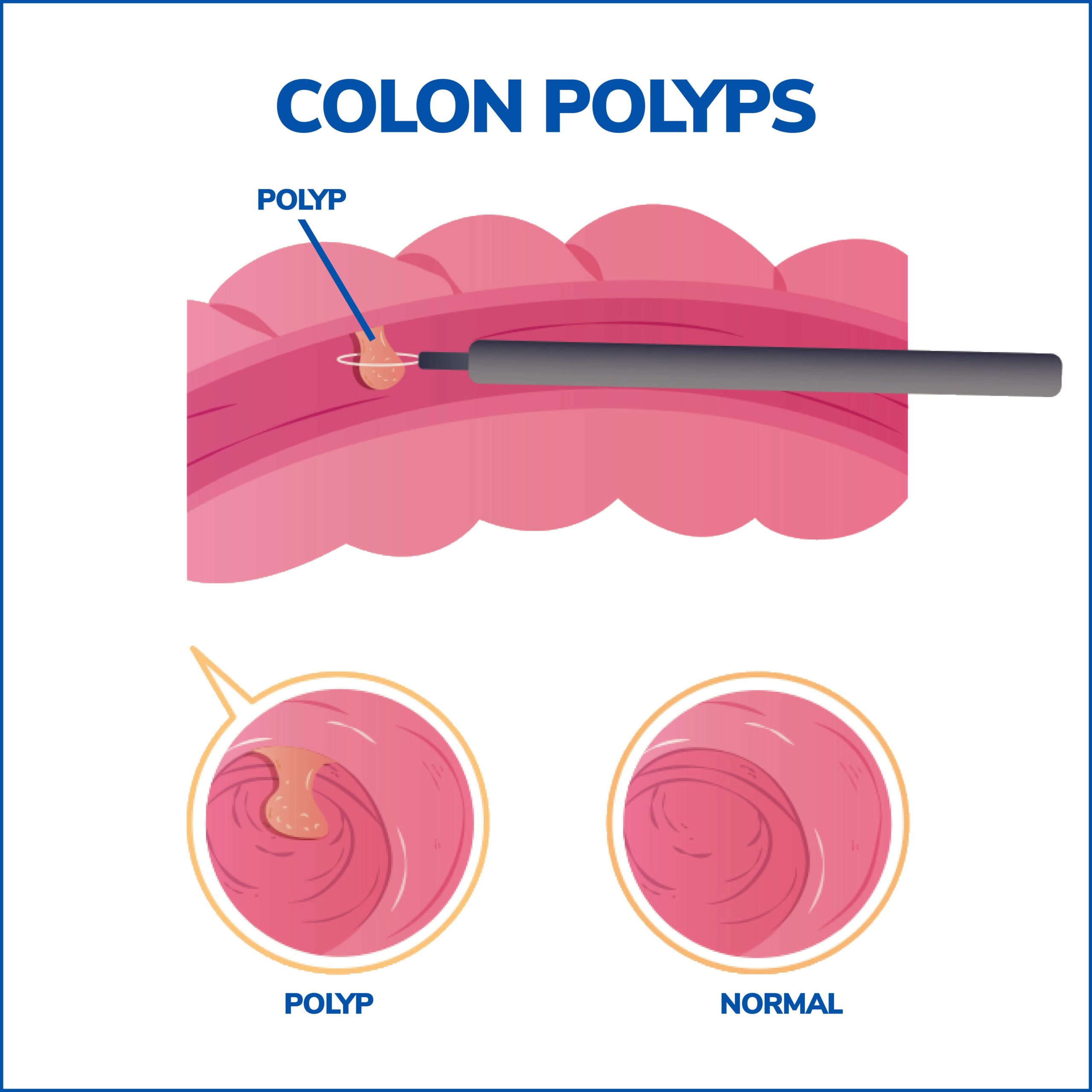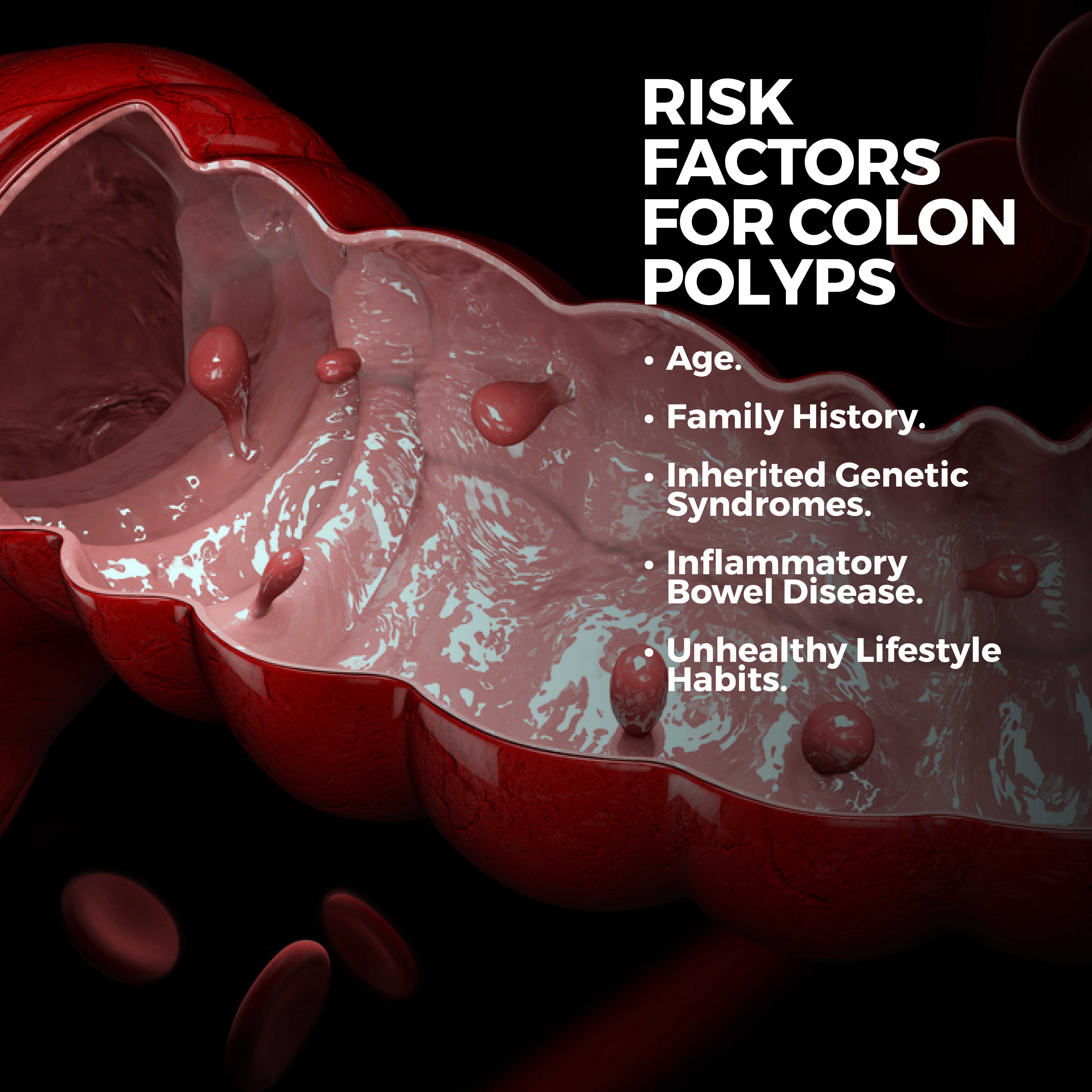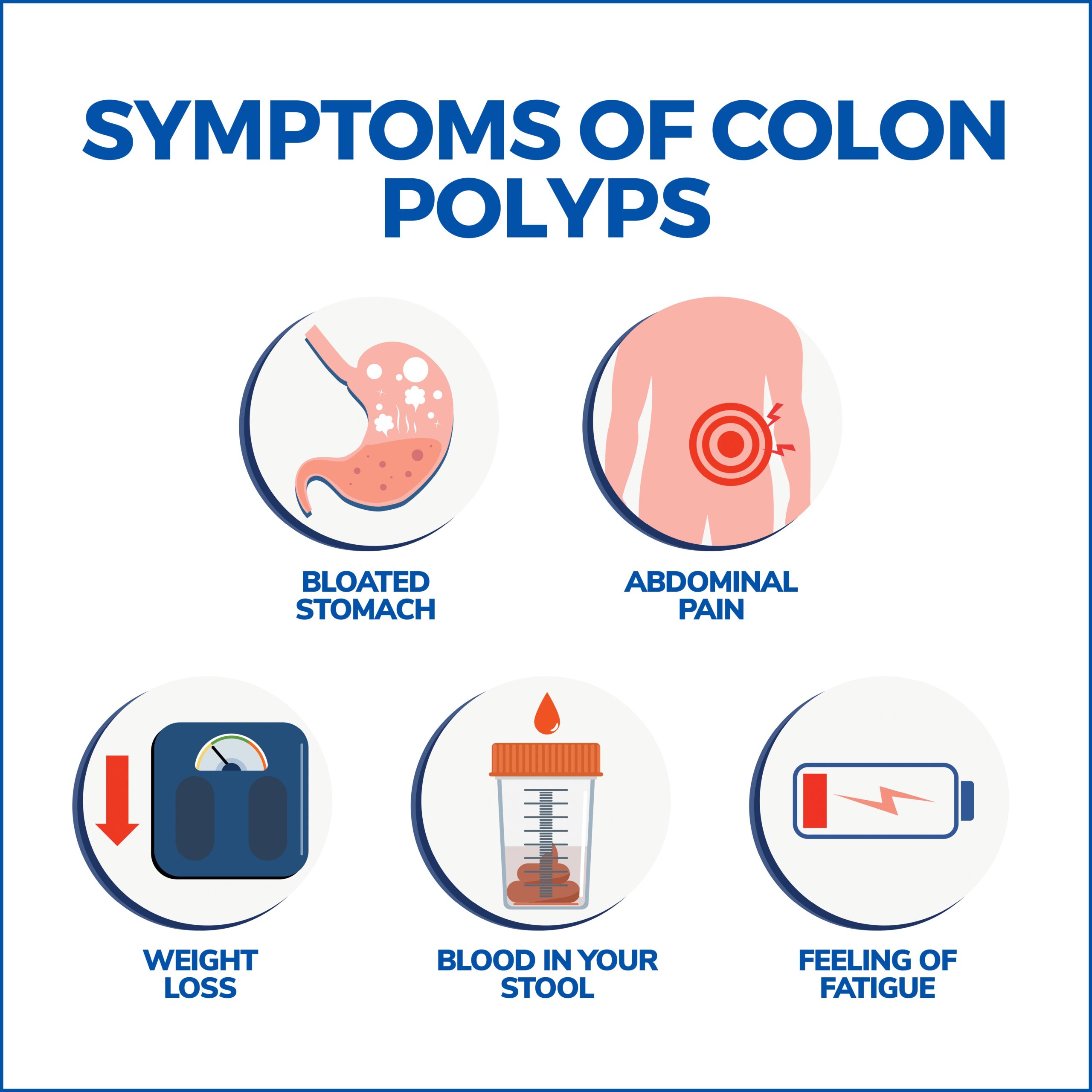
Understanding Colon Polyps – Everything to Know
Colon polyps are growths that develop on the lining of the colon, also known as the large intestine. While most polyps are harmless, some do have the potential to turn cancerous if left untreated. In this article, we will explore some of the different types of colon polyps, their causes, symptoms, and prevention tactics.
What are Colon Polyps?
Colon polyps are abnormal growths on the inner lining of the colon or rectum and can vary in size, shape, and appearance. While most polyps are not harmful (benign), some have the potential to become cancerous over time. Polyps are quite common, with about 20% of the adult population having them, usually in people over the age of 60.

Types of Colon Polyps
There are several types of colon polyps, each with its own characteristics and potential for cancer development. Understanding the different types is crucial in determining appropriate treatment and monitoring strategies. Let’s explore the most common types of colon polyps:
- Adenomatous Polyps. Adenomatous polyps, also known as adenomas, are the most common type of colon polyps. They account for about 70% of all polyps found. Adenomas can vary in size and shape and are significant because they are considered a precursor to cancer. These polyps come in three main subtypes: tubular adenomas, villous adenomas, and tubulovillous adenomas – each with varying degrees of cancer risk.
- Serrated Polyps. Serrated polyps are a group of polyps that have a distinctive appearance under a microscope. They are characterized by a saw-toothed or serrated pattern on the colon’s lining. They are categorized into two main types: hyperplastic polyps and sessile serrated polyps (SSPs). While hyperplastic polyps are generally non-cancerous and less concerning, sessile serrated polyps have the potential to become precancerous or develop into colorectal cancer.
- Inflammatory Polyps. Inflammatory polyps, also known as pseudopolyps, are not true polyps but rather a reaction to chronic inflammation in the colon. They can occur in individuals with inflammatory bowel disease (IBD), such as ulcerative colitis or Crohn’s disease. Inflammatory polyps are generally benign and do not carry a significant risk of developing into cancer.
- Hyperplastic Polyps. Hyperplastic polyps are another common type of colon polyp, typically small and non-cancerous. These polyps have a smooth surface and are often found in the lower part of the colon, especially in the rectum and sigmoid colon. While they are generally considered low risk for developing into colorectal cancer, the presence of certain features within hyperplastic polyps may need closer monitoring or removal during a colonoscopy.
Risk Factors for Colon Polyps
Several factors increase the likelihood of developing colon polyps. While some risk factors, like age and genetics, are beyond our control, others can be modified or addressed through lifestyle changes. Here are some common risk factors associated with colon polyps:
- Age: The risk of developing colon polyps increases with age, particularly after age 50.
- Family History: Individuals with a family history of polyps or colon cancer have a higher risk of developing polyps themselves.
- Inherited Genetic Syndromes: Certain genetic conditions, such as familial adenomatous polyposis (FAP), Lynch syndrome, Peutz-Jeghers syndrome, and juvenile polyposis syndrome, increase the risk of developing polyps.
- Inflammatory Bowel Disease: Chronic colon inflammation, as seen in ulcerative colitis or Crohn’s disease, is associated with an increased risk of polyp formation.
- Unhealthy Lifestyle Habits: Factors such as a high-fat, low-fiber diet, tobacco and alcohol use, sedentary lifestyle, and obesity can contribute to the development of polyps.

Symptoms of Colon Polyps
Colon polyps often occur without symptoms (asymptomatic) and are typically found incidentally during routine screenings or examinations. Larger, or atypical polyps, may have symptoms such as:
- Rectal Bleeding: Small amounts of blood in the stool or visible blood during bowel movements.
- Changes in Bowel Habits: Persistent diarrhea, constipation, or alternating patterns of diarrhea and constipation.
- Abdominal Pain or Discomfort: Cramping, bloating, or persistent discomfort in the abdominal area.
- Mucus in the Stool: Passage of mucus during bowel movements.
- Anemia: Iron-deficiency anemia due to chronic, low-level bleeding from the polyp.
These symptoms can also suggest other gastrointestinal conditions. If you experience any persistent or disturbing symptoms, it is recommended that you consult a gastroenterologist for further evaluation.

Prevention of Colon Polyps
While not all colon polyps can be prevented, certain lifestyle modifications can help reduce the risk of developing polyps and colon cancer. Here are some strategies for preventing colon polyps:
- Maintain a Healthy Diet: A diet high in fruits, vegetables, whole grains, and lean proteins, while reducing processed foods, red meats, and saturated fats, supports colon health.
- Increase Fiber Intake: Increased dietary fiber helps promote regular bowel movements. This helps reduce the likelihood of constipation, a factor linked to an elevated risk of colon polyps.
- Exercise Regularly: Regular physical activity promotes overall health and can reduce the growth of colon polyps. Aim for 150 minutes of moderate-intensity exercise or 75 minutes of vigorous-intensity exercise per week.
- Limit Alcohol Consumption & Avoid Tobacco: Both alcohol consumption and the smoking of tobacco have been linked to an increased risk of colon polyps. It is recommended to limit alcohol intake or avoid smoking altogether to lower the risk of colon polyps and improve overall health.
It’s important to note that while these lifestyle modifications can reduce the risk of colon polyps, they do not guarantee complete prevention. Regular screening and early detection are crucial in effectively identifying and managing colon polyps.
Contact Us
Colon polyps are common growths that occur on the lining of the colon or rectum. While most polyps are benign, some have the potential to become cancerous if left untreated. Screenings, lifestyle modifications, and early detection play a vital role in reducing the risk of colon polyps and ensuring optimal colon health.
Our team of experts is here to help diagnose and treat your condition with the utmost care and expertise. Our practice began more than 15 years ago and has emerged as one of the leading gastroenterology practices in central Florida. We perform a host of diagnostic procedures using state-of-the-art equipment in a friendly, comfortable, and inviting atmosphere where patient care is always a top priority. Contact us today!